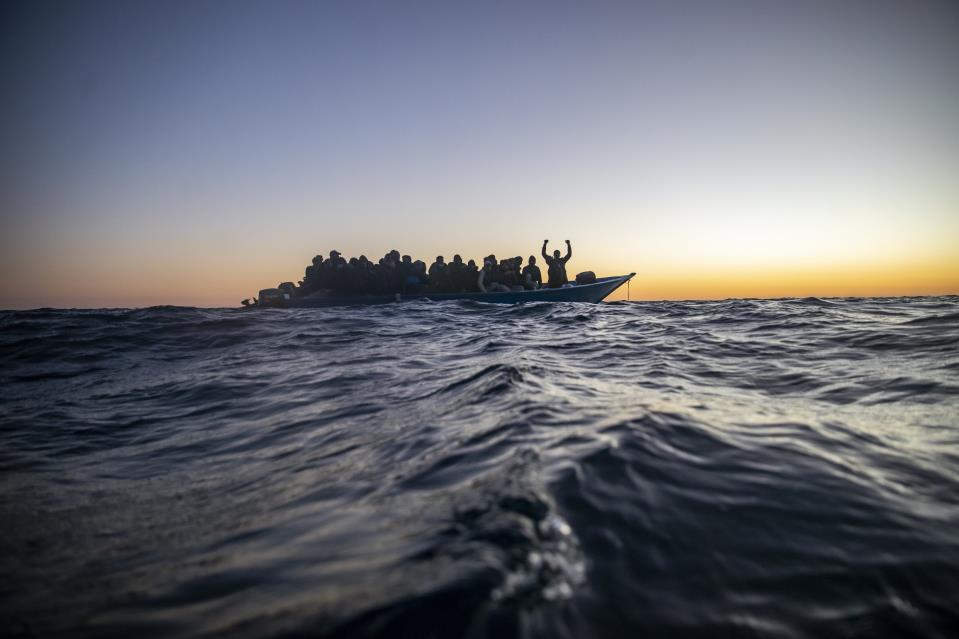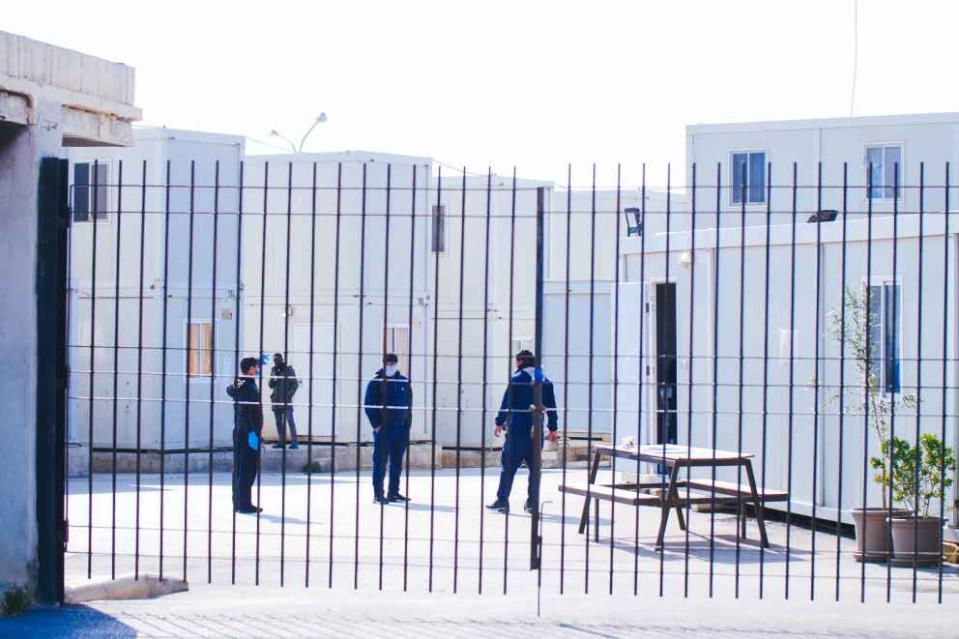Malta has an obligation to provide people rescued at sea and disembarked in the country with access to the asylum procedure for those seeking asylum, and accommodation in suitable and adequate reception facilities, the UN's refugee agency (UNHCR) told The Malta Independent.
“At the same time, as a small country on the external borders of the EU, it is a reality that Malta needs predictable solidarity from the EU.”
Responding to questions posed by this newsroom, the UNHCR highlighted that almost 1,500 relocations have been completed between 2018 and 2021. "Yet there is an urgent need to establish a disembarkation and relocation mechanism that is predictable and based on shared responsibility, rather than continuing to rely on ad hoc agreements with just a few willing Member States."
In this regard, the UNHCR welcomed the EU Commission’s proposal for an EU Pact on Migration and Asylum, saying that among other things it emphasises solidarity across the EU, in particular with regards to countries of first arrival.
Recently, the Council of Europe's anti-torture committee had found a number of problems with Malta’s migrant detention practices. In a report on a rapid reaction ad hoc visit to Malta in September 2020, the Council of Europe's anti-torture committee (CPT) had urged the Maltese authorities to change their approach towards immigration detention and to ensure that migrants deprived of their liberty are treated with both dignity and humanity.
Overall, the CPT found an immigration system that was struggling to cope: a system that purely “contained migrants who had essentially been forgotten, within poor conditions of detention and regimes which verged on institutional mass neglect by the authorities." It highlighted that the design of detention centres such as Hermes Block and the Warehouses at Safi Detention Centre remained totally inappropriate, among other things.
The Malta Independent contacted UNCHR Malta to get their thoughts on the migration situation in the country.
"The past couple of years have been challenging, with increased numbers of sea arrivals placing pressure on the country’s asylum and reception systems. Sea arrivals increased from 1,445 in 2018, to 3,406 in 2019, which was a record year. During this period the initial reception centre and open centres struggled to cope, and we unfortunately saw a return to the use of closed centres for almost all new arrivals by sea.” The agency said that many people have been confined in closed centres for prolonged periods that often exceeded the timeframe stipulated by law.
"In 2020, there were 1,700 arrivals in the first six months of the year, and Covid-19 exacerbated an already difficult situation in the overcrowded centres. With the urgent need to promote physical distancing, efforts were made to decongest centres and provide more resources to curb the spread of the virus."
Due to the severity of the pre-existing overcrowding and substandard material conditions in centres, the efforts only slightly alleviated the situation, the agency said.

“While UNHCR remains concerned about the overall situation of asylum-seekers rescued at sea, who are detained upon arrival in Malta in substandard conditions, we also acknowledge that the authorities have started to implement changes since the end of 2020. This includes the release of many asylum-seekers into open centres, greatly alleviating overcrowding and leading to the closure of one of the closed facilities, and efforts to improve the protection of children. The authorities are in the process of implementing changes in regard to renovation and human resources. Should these efforts continue, they will contribute to improving reception conditions of asylum-seekers in Malta.”
The UNHCR said it considers that the implementation of fair and fast asylum procedures would come a long way to help alleviate the situation in Malta. "This would require an adaptation of the current system. UNHCR has set forth its recommendations for such procedures in 2018."
Home Affairs Minister Byron Camilleri was quoted in the Times of Malta as having ruled out building any new centres for migrants and asylum seekers, even after the Council of Europe's report, however he did say that there has been "enormous progress" and "substantial investment" in the centres that house people who arrive in Malta after being rescued at sea. He also said that the people arriving should be treated with dignity. The minister had highlighted the high amount of arrivals and said that while Malta will continue to do its part, other countries must also do theirs. He also said that Malta implemented many of the Council of Europe committee's recommendations.
Asked for its thoughts about the minister's statements, the UNHCR said that due to its position in the Central Mediterranean and the continued instability in Libya, Malta will keep receiving asylum-seekers, refugees and migrants arriving by sea. “Malta has an obligation to provide persons rescued at sea and disembarked in the country with access to the asylum procedure for those seeking asylum, and accommodation in suitable and adequate reception facilities. At the same time, as a small country on the external borders of the EU, it is a reality that Malta needs predictable solidarity from the EU.”
"Thanks to efforts by the Maltese Government, other EU countries and the support of the European Commission, almost 1,500 relocations have been completed between 2018 and 2021. Yet there is an urgent need to establish a disembarkation and relocation mechanism that is predictable and based on shared responsibility, rather than continuing to rely on ad hoc agreements with just a few willing Member States. This ad hoc approach has often put people’s lives at greater risk, with boats sometimes left drifting at sea without a port of safety until agreements are reached."
When it comes to reception facilities, the UNHCR said that Malta should carry out contingency planning and always remain prepared for the possibility of fluctuations in arrivals. "This will ensure that there is enough capacity in open centres to accommodate asylum-seekers in adequate conditions and with necessary safeguards for vulnerable groups such as unaccompanied children."

Asked whether it believes Malta needs a new detention centre, the agency said that Malta should not rely on a system of automatic use of closed facilities for asylum-seekers. "In 2015 Malta ended this policy switching to an open initial reception system. However, since 2018, due to the pressure caused by an increase in arrivals, we unfortunately saw a return to asylum-seekers being automatically detained on arrival for long periods."
"Following the recent reduction of persons in closed centres, we hope Malta will continue to move away from the use of automatic detention of sea arrivals. Detention should only be used as a last resort. This means that in the absence of viable alternatives, detention should only be used for a legitimate purpose and in a proportionate manner, following an assessment of each individual’s particular circumstances, and should be subject to periodic review. Children should not be detained. State practice across Europe shows that lighter movement restrictions in reception facilities are usually sufficient and a resort to detention is not necessary."
In addition, the UNHCR said that an improvement of the national asylum system to ensure fair and fast asylum procedures, will allow for the swift identification of persons with international protection needs, and facilitate the return of those not in need of protection. This will also reduce pressure on the reception system, it said.
It said that when asylum-seekers are detained, conditions must be dignified and they should have access to their basic rights. UNHCR continues to advocate for improvements in closed centres to meet the minimum national and international standards, by having better material conditions, better access to legal aid, and allowing all asylum-seekers contact with the outside world. "Being detained for prolonged periods in the current conditions can have damaging effects on the wellbeing of asylum-seekers, many of whom - as survivors of war, violence and persecution – have already endured significant trauma when they fled their countries of origin. In the past UNHCR received reports of self-harm in the centres, usually a direct result of the frustration and desperation asylum-seekers experience after such long periods in undignified surroundings."
The UNHCR said that the recent transfers of people into open centres will contribute to alleviating the issues outlined above. "There are currently less than 400 persons in closed centres, compared to around 1,500 persons one year ago. Furthermore, UNHCR has been informed that there are currently no children being held in closed centres, which we welcome. In this regard, there are also efforts to improve the protection of unaccompanied children, in order to avoid stays in closed centres and accelerate their access to proper reception conditions and asylum procedures."
Asked whether it believes the EU needs to step up its support of Mediterranean countries that receive the most asylum seekers, it said that the EU – through the Commission and agencies - has been supporting Malta in different ways. "The European Asylum Support Office for example has provided significant assistance to Malta in, among other procedures, the registration and processing of asylum applications in the country."
When it comes to search and rescue, the UNHCR continues to call on EU Member States to work towards solutions that will ease the pressure on Member States of first entry in the Mediterranean which receive high numbers of sea arrivals. “This should be realised in the form of a predictable mechanism for disembarking people rescued at sea,” it reiterated. “Responsibility for receiving as well as hosting people seeking safety and asylum can and must also be shared in a fair and practical way, through a predictable solidarity mechanism.”
The agency said that In 2021 alone, there have already been a number of relocations from Malta to Spain, France, Germany, Portugal, Ireland and Luxembourg. "The relocation efforts are humane, concrete demonstrations of European solidarity. For long term impact, we hope predictable arrangements for relocation within the EU will be put in place. "
It highlighted that the EU Commission’s proposal for an EU Pact on Migration and Asylum is a key opportunity for all states to better protect refugees, in a fair and practical way that works for people in need of protection and countries and communities hosting them. "The current approach in the EU is untenable. While the proposals are still under negotiation, we welcome the emphasis on addressing root causes, on better managing migration in a way that works for everyone, and on solidarity across the EU in particular with regards to countries of first arrival. There is also a commitment to enhanced search and rescue and predictability around disembarkation. Crucially, the Commission has been clear on the protection of fundamental rights and the need to ensure the right to seek and access asylum in the EU – there can be no compromise when it comes to the fundamental right to seek asylum."